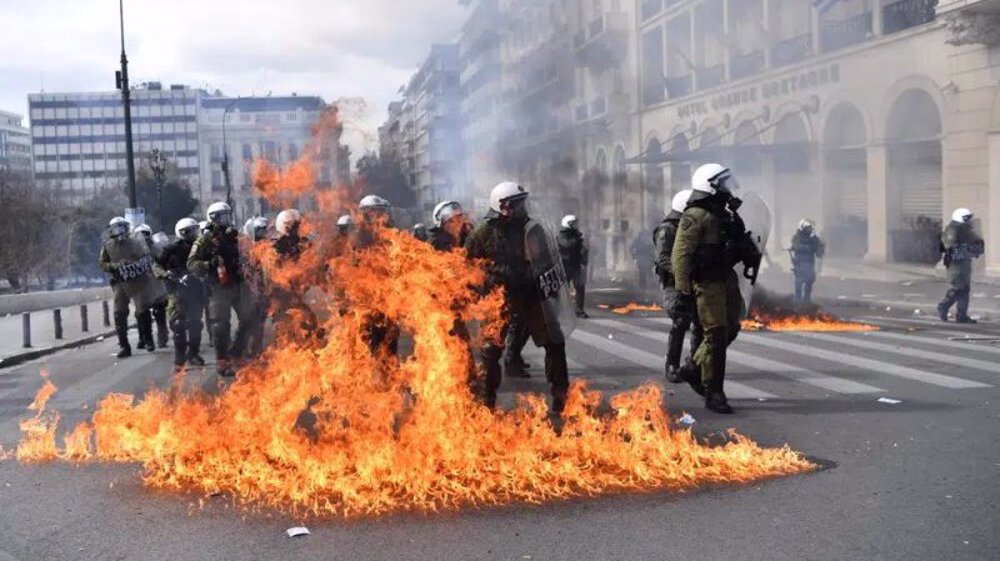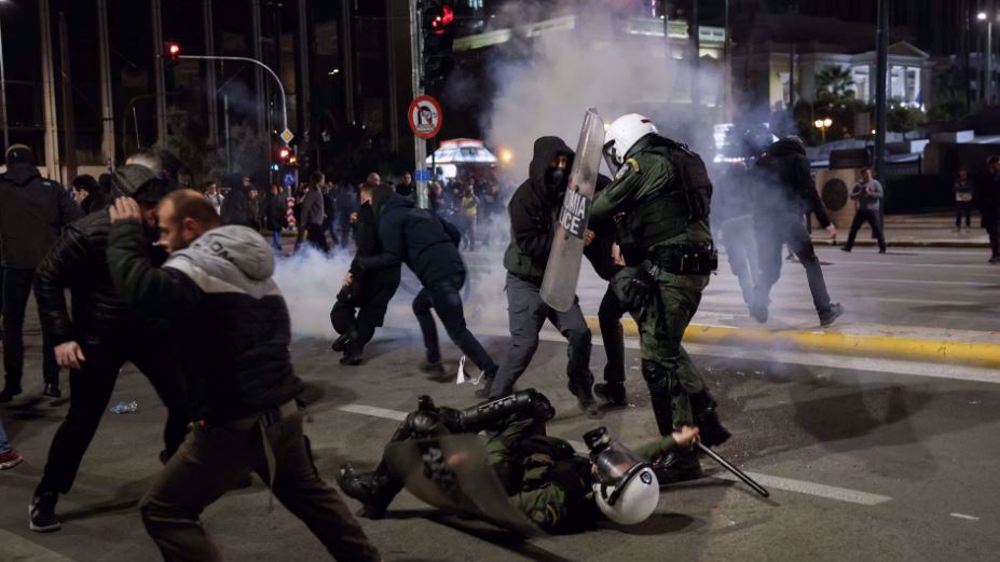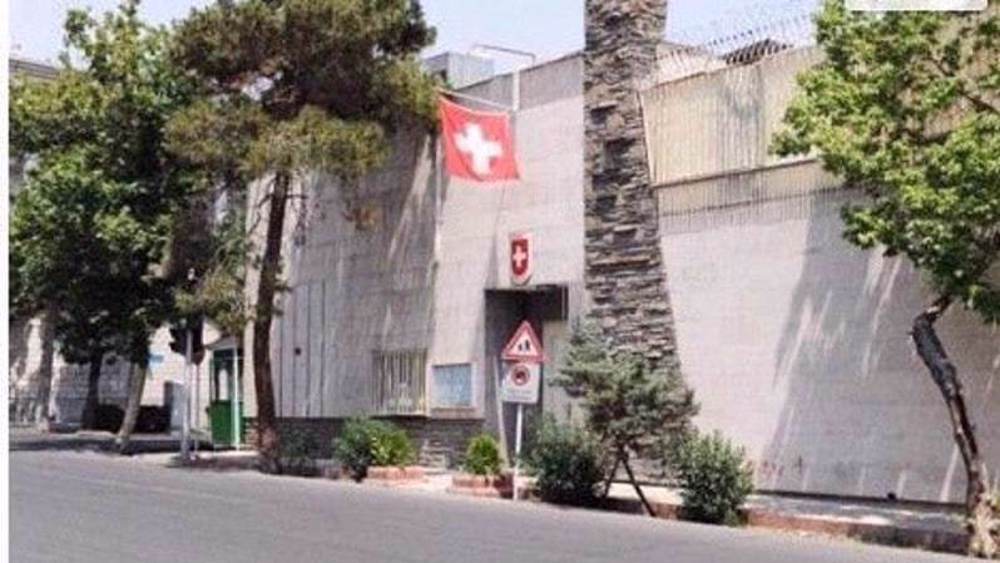Police, protesters clash over rail crash in Greece
Demonstrators in Greece have clashed with police over a deadly rail crash that claimed the lives of dozens of people last month.
On Thursday, some 25,000 angry demonstrators rallied in central Athens. Some clashed with police at the Greek capital’s central Syntagma Square near parliament.
Protesters, hurling firebombs and rocks, tried to surround police officers, who responded by firing tear gas and stun grenades.
Reports said that retreating demonstrators smashed traffic lights and shop windows and torched rubbish bins.
Athens was not the only Greek city to witness demonstrations over the crash. According to police, more than 40,000 people protested across the country on Thursday, including some 8,500 in each of Greece's next largest cities, Thessaloniki and Patras.
On February 28, a passenger service carrying 350 people, mostly students returning from a holiday weekend, crashed head-on into a freight train in the northern town of Katerini just before midnight after they ended up on the same track, causing the front carriages to burst into flames.
The crash killed 57 people, triggering protest rallies.
The tragedy also exposed decades of deficient safety systems throughout the rail network across Greece and has put major pressure on the conservative government ahead of national elections expected in May.
The 24-hour strike on Thursday is the biggest yet in days of industrial action that followed the tragedy, this time called by Greece’s leading private as well as public sector unions.
The strike has shut down the civil service, flights and ferries.
"Things have to change in this country, we simply cannot mourn all these deaths,” said one of the protesters in the capital, referring to deadly wildfires that have gripped Greece in recent years as well as the train crash.
Last week, some 65,000 people took part in protest rallies around the country, including around 40,000 in Athens.
Hellenic Train, the Italian state-owned company operating rail services in Greece, has already said those hurt in the crash and the families of the dead would each get between €5,000 (S$7,100) and €42,000 “to cover immediate needs."
Following the crash, Greek Transport Minister Kostas Karamanlis stepped down, and Prime Minister Kyriakos Mitsotakis has sought to soothe public fury by repeatedly apologizing and vowing a transparent investigation into the incident.
The crash brought rail traffic to a complete halt across the country, but acting Transport Minister Georgios Gerapetritis earlier this week that services would gradually resume from March 22.
VIDEO | Press TV's News Headlines
VIDEO | Yemeni strikes Israel again after calls to end gaza genocide ignored by regime
Gen. Soleimani stood by Iraq during most challenging times: Iraqi PM
Israeli soldier flees Brazil amid probe into Gaza war crimes
Another journalist killed in Israeli attack on Gaza as toll rises to 220
Gaza faces severe shortage of medicine amid Israel's blockade
VIDEO | Sydney protesters denounce genocidal war on Gaza
8th baby freezes to death in Gaza amid Israel's campaign of extermination











 This makes it easy to access the Press TV website
This makes it easy to access the Press TV website